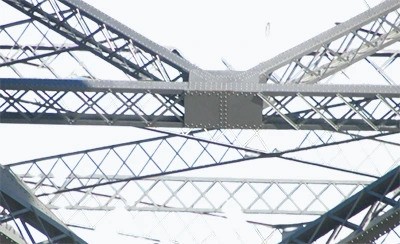Tel: 0129-4001010 Phone: +91 730 321 5033
Email: cs@absoluteveritas.com
BIS CERTIFICATION FOR STRUCTURAL STEEL IS 3039:1988
In today's competitive landscape, maintaining market presence without a certified, high-quality product can be challenging. Obtaining a BIS license may also be essential for selling products in the Indian market. To achieve BIS certification and ensure product quality, manufacturers must adhere to the specified Indian standards.
Let's delve deeper into at IS 3039:1988 for Structural steel for the construction of hulls of ships.
This standard outlines the specifications for rolled structural steel plates, sections, flats, and bars utilized in ship hull construction. Grade I is designed for general purposes, while Grade II and Grade III serve special applications. It's important to note that this standard excludes rivet bars used in ship construction.
The steel must be produced utilizing methods such as open hearth, electric furnace, basic oxygen, or any other process approved by the purchaser. For steel produced by the basic oxygen process, the nitrogen content must not exceed 0.007 percent. Grade I steel may be either killed or semi-killed. Grade II steel must be of the killed type, incorporating fine grain practice and the application of aluminium or other grain refiners. Additionally, Grade II steel may be supplied in a semi-killed state for thicknesses up to and including 35 mm, provided that steel over 25 mm thickness undergoes normalization. Grade III steel should be provided in fully killed conditions, manufactured with fine grain practice, and incorporating aluminium and other grain refining elements like Nb, V, and Ti.
All materials must be devoid of cracks, surface flaws, segregation, lamination, pipe, and any other defects that could negatively impact the material's performance. Surface defects may be eliminated through chipping or grinding, ensuring that the material's thickness remains at least 93 percent of the nominal thickness, with no more than a 3 mm reduction at the dressed location.
TESTS
The subsequent test must be conducted for Structural Steel.
-
Tensile test
-
Impact test
-
Chemical composition
-
Tolerance
MARKING:
Each finalized product must bear the inspecting authority's brand in at least one area designated by the manufacturer. Unless specified otherwise, the following details must also be visibly marked on every product:
-
Manufacturers name or trade mark
-
Grade of steel
-
Cast number
-
Purchaser identification mark, if required by the purchaser.
Manufacturers have the option to apply the ISI mark to the material. However, to use the standard mark (ISI Mark), they must first obtain a BIS license from the Bureau of Indian Standards. This license is awarded after a thorough assessment of manufacturing infrastructure, production processes, and quality control and testing capabilities during an inspection conducted at the manufacturing premises by the Bureau.
PROCESS FOR BIS ISI MARK CERTIFICATION

BIS CERTIFICATION PROCESS
Acquiring a BIS license requires a comprehensive review of manufacturing infrastructure, quality control abilities, testing resources, and production procedures. This thorough assessment guarantees that products not only adhere to regulations but also prioritize consumer safety and reliability.
NOTE:
For comprehensive guidance on the BIS ISI Certification process, please explore:
WHY USE ABSOLUTE VERITAS?
Absolute Veritas is a prominent organisation from the private sector of India primarily dealing with the Inspection, Testing, Audits, Certification of products& consulting services to various industries in India and worldwide, ensuring compliance with regulatory standards and industry requirements. Offering a comprehensive range of services including product certification, testing, training, auditing, and compliance services, Absolute Veritas helps manufacturers and importers achieve higher production efficiency and quality standards.
Absolute Veritas (AV) will handle end to end pre-registration request, sample preparation, documentation, testing and application process for FMCS Certification
For any questions regarding the most recent update on FMCS registration licenses, please reach out to us via email at cs@absoluteveritas.com








 ❮
❮
